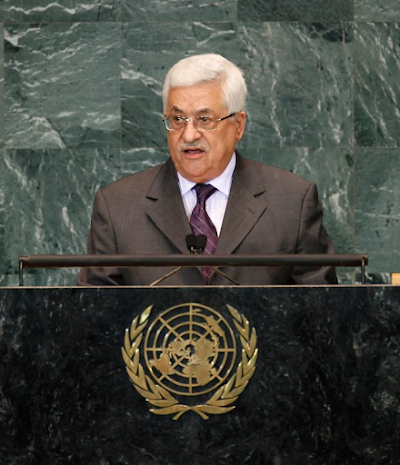Palestinian leaders want to obtain full membership in the
United Nations (UN). They have also launched a new diplomatic campaign to get
membership, which will start with a speech by the President of Palestine,
Mahmoud Abbas, at the UN General Assembly on September 23.
Palestinian government spokesman Ibrahim Melhem said on
Wednesday, “In the absence of a political path for the Palestinians to end the
occupation, they have no choice but to resort to the United Nations to enhance
the status of Palestine as a state.”
According to Fatah official Sabri Saidem, France encouraged
the Palestinians to seek full membership in the UN.
In 2011, President Abbas submitted the application of
Palestine for membership in the UN. UNESCO (United Nations Educational,
Scientific and Cultural Organisation) admitted Palestine as a Member. According
to Arab News, The United Nations granted Palestine non-member observer state
status at a vote in the General Assembly in November 2012. During the voting
process, 138 countries voted in favour, 9 voted against it, and 41 abstained.
Direct peace talks between Israel and the Palestinians,
which were sponsored by the United States (US) in 2013, were stopped in 2014
because of the issues related to Jewish settlements in the West Bank. Palestine
held the Israeli government responsible for the Jewish settlers’ practices in
the West Bank.
Israeli authorities still occupy the West Bank. However, Palestinians want the occupied West Bank as part of their future independent state. Israel also claims Jerusalem as its capital, but the Palestinians claim East Jerusalem as the capital of a future Palestinian state.
In March this year, Palestinian Prime Minister Mohammed
Ishtaye said that Israel undermined any chances of establishing a Palestinian
state. He also said that no solution will be achieved through negotiations.
Israeli Prime Minister Naftali Bennett also said that his
government would not hold any talks with the Palestinian President.

Comments
Post a Comment